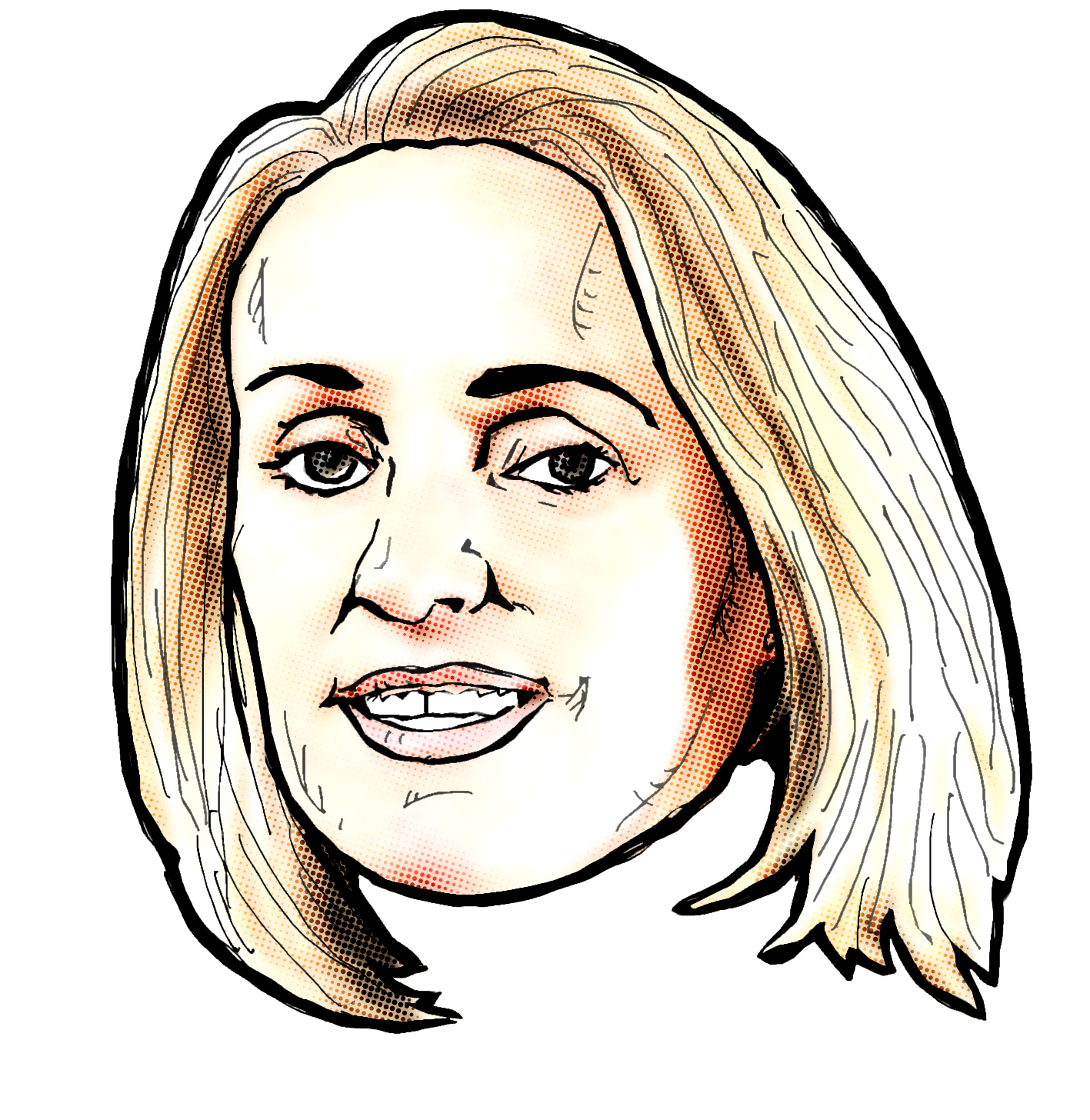Revealed: 30 Top Female Cybersecurity Leaders 2022

Here's our pick of the most influential women in cybersecurity in a year marked by changing workplaces and digital warfare
With in-person events on the agenda once more, cybersecurity has emerged from the pandemic as an industry much wiser to the needs of its employees.
Remote work conditions put a renewed focus on work-life balances, where women tended to bear the brunt of childcare and other domestic responsibilities throughout lockdown.
Many across cyber think that this gender imbalance should serve as an action point to the sector’s diversity efforts, enticing the entry and retention of women by continuing to uphold flexible working hours and work from home options.
A decade of action is required
Research published last year by the Chartered Institute of Information Security (CIISec) demonstrates the value of improving the conditions disproportionately affecting female employees, revealing how 57% of women in the cybersecurity industry believe that “at least a decade” is required to achieve gender equality in the workplace.
This certainly rings true with the 2022 UK Cyber Security Salary Survey, conducted by Cybershark Recruitment in partnership with SC Media UK, which highlighted a substantial disparity between the pay of male and female counterparts with over 15 years of experience.
While pay equity appeared to be roughly achieved with cyber professionals that had up to 10 years of experience, the present lack of female cybersecurity leaders was partly attributed to salary discrepancies in senior-level positions.
Changing hiring practices
Adjusting job descriptions for improved inclusive hiring practices is another change that cybersecurity could be implementing, with evidence suggesting that recruiters are far too often using the wrong language to propel women into leadership positions, according to a market analysis commissioned by Caroline Rivett, partner at KPMG.
“I firmly believe that if you have two women in leadership positions then you really start to change the culture of an organisation,” says Rivett.
“More women start to join and it is seen as a positive place to work, equally beneficial male colleagues.”
We spotlight Rivett this year alongside 29 other influential women who have made their mark on the cybersecurity sector.
Together these women represent the span of skill sets amenable to cyber and demonstrate how there is no clear pathway to a career in this field other than good will and a burgeoning curiosity.
They share similarities but none more prominent than having to answer to being a woman working in information security, a journey that each champions by passing on their thanks to mentors, male allies, and the women who came before them.
Increased attention needs to be placed on supporting both current and prospective female cybersecurity professionals coming from the BAME community, this year’s leaders said.
Their individual summaries, found below, provide further diversity and inclusion recommendations and also strive to paint a picture of the present cybersecurity landscape, one that bid farewell to the pandemic while saying hello to a war in eastern Europe.
REVEALED: 30 top cybersecurity leaders 2022

Katy Anton
Security Leader, OWASP
Katy Anton runs the OWASP chapter in Bristol and is the project co-leader for the OWASP Top Ten Proactive Controls, a list of secure coding techniques for developers.
She has worked in all aspects of secure software development and specialises at present in securing large scale enterprise products in modern architectures like the Cloud.
Anton says: “OWASP is created by volunteers, people like myself, that want to share their knowledge and spread the love of securing software.
“It provides members with the opportunity to get involved with the greatest minds in application security and bring what they learn back into their day to day jobs.”

Sarah Armstrong-Smith
Chief Security Advisor at Microsoft
The recent invasion of Ukraine by Russian forces has prompted tech giants like Microsoft to concentrate their efforts in offering protection from state-sponsored disinformation campaigns and other types of cyberattacks in eastern Europe.
For Sarah Armstrong-Smith, who now enters her third year as Microsoft’s Chief Security Advisor, the ongoing conflict has welcomed in a new era of cyber warfare, which highlights the sheer harm caused by activities like espionage, digital disruption, and disinformation online.
“The war in Ukraine has shown how disinformation can cause so much harm to millions of people,” she says.
“This is why we need to consider the source and validity of information, when making decisions.
“This type of threat will continue to evolve with deepfakes, and mixed reality, which will potentially make it harder for people to determine fact from fiction.”

Dr Victoria Baines
Author and researcher
Dr Victoria Baines began her career in law enforcement with the Surrey Police Service in 2005 after receiving a PhD in Ancient Literature. She has since worked with a number of international organisations, including Interpol, UNICEF, and the Council of Europe, as well as served as Facebook’s Trust & Safety Manager for Europe, Middle East and Africa, where she supported efforts to eradicate criminal activity online on both policing and policy levels.
In September, Baines will be taking on a new role as Professor of IT at London’s Gresham College.
Her new book, Rhetoric of InSecurity: The Language of Danger, Fear and Safety in National and International Contexts, was released earlier this year.
Baines says: “Any degree that makes you think about research methods, that makes you scrutinize something or think about things logically, is a good enough degree to work in cyber.”

Sharon Barber
Chief Resilience and Security Officer at Lloyds Banking Group
Sharon Barber is back this year as one of SC Media UK’s top picks for the most influential women in cyber.
Despite her initial thinking that security would only be a temporary stopover from IT, Barber has worked in the industry now for over ten years.
In her present role at Lloyds, she has been pivotal to protecting the financial services sector from cyberattack including incidents of ransomware, destructive malware, and supply chain compromise.
Barber says: “Diversity within cybersecurity is not just a tick box exercise; it’s essential to have an effective defensive team to deal with such a variety of threats.
“In my team at Lloyds we have a wide mix of colleagues from diverse cultures, communities and languages, and we also know that diversity of thought is a game changer.
“We need to think differently and challenge the standard way of doing things to help keep us secure.”

Lindy Cameron
CEO of the National Cyber Security Centre
The latest diversity and inclusion survey from the National Cyber Security Centre (NCSC), which acts like a population census for industry, points to the ongoing barriers of entry for those interested in taking up a career in cyber.
The high cost associated with gaining technical qualifications, for example, was found to be a major factor often impeding socioeconomic and ethnic diversity within the sector.
Now entering its third year of publication, this key piece of research has been led, in part, by Lindy Cameron, who has held the position of CEO at the NCSC since 2020.
Cameron says: “The survey shows a mixed picture. There are some areas to be proud of: in terms of who we are, more than a quarter of respondents identify as having a disability. But we are still evidently a very male profession, with disproportionately male senior leadership.
“At the NCSC we are committed to bringing more women into the profession, for example with our CyberFirst Girls Competition.
“But there’s clearly more to do. We are a growing profession – so this isn’t a structural problem we have to live with – if we face this head on, we can ensure we are a profession that fully reflects our nation’s rich diversity and full range of talent.
“We will need to, both to get the skills we need today and make the most of them, and to avoid a skills gap tomorrow.”

Ciara Campbell
Senior Security Engineer at Tenable
Ciara Campbell went back to university as a mature student and attained her BSc Honors in Computer Systems and Networking. She later took part in the Cisco Sales Associates graduate programme (CSAP) and now has ten years experience working in tech roles for some of the world’s largest companies, including her present position within the Vulnerability Management Engineering team at Tenable.
Campbell is also heavily involved in both internal and external initiatives promoting Women in Tech, which sees her supporting women of all backgrounds in STEM.
She says: “I wouldn’t say I consider myself a role model, but I’m definitely an advocate for a career in cybersecurity.
“Early in my career, when my kids were a lot younger and it was hard to juggle family and move up the career ladder, I was promoted and I was thrilled.
“A younger female colleague said to me that I was a role model to her. She said she’d want to have children someday and to see me progress in my career with a family showed it was possible.
“I love the cybersecurity industry and it's certainly one that recognises and embraces diversity as it empowers us to achieve greater creativity and innovation, allowing us to think outside the box, and drive innovation.”

Saskia Coplans
Founder and director of Digital Interruption and REXSCAN
Saskia Coplans is a specialist in data protection and information security standards with over ten years experience working with governments, NGOs, regulators, and the private sector across Europe and Central Asia. She now leads Digital Interruption, a cybersecurity consultancy and security software development house that she co-founded in 2017 in Manchester.
Coplans has been a champion of inclusive spaces throughout her career, most notably with the InfoSec Hoppers, a skills and diversity group that helped raise female representation throughout the cybersecurity community in Greater Manchester between 2019 and 2021.
She also sits on the respective boards of OWASP Manchester and the Greater Manchester Cyber Advisory Group and is a 3x Innovate UK grant winner for her work with REX, an Android application vulnerability scanner designed for security novices.
Coplans says: “We rely on mobile applications now more than ever, but the speed in which they are pushed out means that over 70% of mobile apps will never be tested for security.
“This is because mobile security testing is simply too niche, and therefore costly, to be able to keep up with the fast pace of development.
“As an industry, we need to be investing in innovative automated security tools in order to bridge the gap of security for emerging technologies.”

Katie Diacon
Technology, Media and Telecommunications Cyber Lead and Head of Corporates Resilience at KPMG UK
Katie Diacon spent ten years in the RAF as an engineering officer before setting up her own marketing business, which she ran while her 3 children were young.
Her technical background combined with her enjoyment of working with people made cyber an attractive career pathway, where her current role assists a variety of global clients in transforming their security processes.
Diacon says: “The directive for all US organisations to move to a Zero Trust strategy will also have an impact on many UK organisations with many already starting their Zero Trust journey making their businesses significantly more secure.
“The UKs drive to improve resilience across the board will see the telecom security regulations released and the outcome of the BEIS regulatory requirements which could see the requirement for UK Sox and resilience statements with the latter having an impact on the cyber teams across all organisations.”

Vivian Dufour
CEO of Meterian
Vivian Dufour is a former software developer who joined Meterian in 2018 to lead the startup in its objective of building scalable defences for apps that use open source software.
The software as a service platform provider was one of the new startups selected in August of last year to receive technical expertise from both the National Cyber Security Centre and GCHQ as part of the UK government’s NCSC For Startups programme.
Dufour says: “If we are to increase safety and trust in software, we must improve transparency and visibility across the entire software supply chain.
“Companies should have the ability to automatically identify open source components in order to monitor and manage security risk from publicly disclosed vulnerabilities.
“A software bill of materials (SBOM) should be a minimum for any project or development.
“Without such visibility of all component parts, security teams cannot manage risk and will be unaware, and potentially exposed, to dangers lurking in their software.”
Prior to leading Meterian, Vivian held senior roles at EF Education First, MINERVA Research Labs, Amazon, and Yahoo.
Meadow Ellis
Lead Hardware Security Engineer
Meadow Ellis has always been fascinated by security, having spent most of her eclectic career moving between offensive and defense job titles in order to understand how safety is delivered to individuals of different risk levels.
She currently conducts hardware security research for the flourishing Fintech sector, while sitting on the review board for Black Hat Europe.
Ellis says: “The future will bring new technologies and new security products, but companies will continue to be breached by old problems like a vulnerability from 20 years ago.
“We’re still not doing the basic things and fixing known issues promptly. There will be AI. There will be Quantum. But we still need to do the boring part of security.”

Ibukun Emmanuel-Adebayo
Cybersecurity and Fraud Risk Consultant
Ibukun Emmanuel-Adebayo has worked across multiple sectors in roles such as CISO, Head of Information Security, Chief Information Officer, and Head of IT.
In 2020, she founded The Ladder Back Down, a consultancy providing cybersecurity mentorship, skills, and knowledge transfer to BAME communities.
Emmanuel-Adebayo says: “I founded The Ladder Back Down following personal experiences, which led me to appreciate the need to move beyond being the solo black female InfoSec leader at each summit, to inspire and support other BAME humans to join the industry too.
“We can’t keep saying ‘talent shortage’ whilst many of my fellow learned and willing black humans continue to man security gates or do care roles because they are not being given the opportunities to evidence their skills and knowledge in industry.”
Ibukun has trained aspiring professionals, mainly from the BAME community, since 2006.

Amanda Finch
CEO of the Chartered Institute of Information Security (CIISec)
The Chartered Institute of Information Security (CIISec) is an independent not-for-profit with a mission to raise the standard of professionalism throughout the cybersecurity sector.
Having become CEO of the NCSC-accredited certification body in 2011, Amanda Finch has led CIISec and its 10,000 members in efforts to close the cyber skills gap, an undertaking that saw the launch of a new qualification programme earlier this year.
Under CIISec’s management, the Extended Project Qualification (EPQ) aims to foster the next generation of cybersecurity professionals by offering a straightforward route into the industry to anyone from the age of 14.
Finch says: “To keep the industry from stagnating, organisations need to give clear career paths, showing precisely what skills professionals need to develop in order to keep progressing.
“Employers must provide access to the right training so that they can ensure employees have the knowledge and experience they need to progress.
“Doing this will ensure the industry continues to grow and is always innovative enough to keep up with the ever-changing threat landscape.”

Lisa Forte
Partner at Red Goat Cyber Security
Lisa Forte helps companies prepare for cyberattacks by running training exercises that ensure their incident response plans are well practiced.
A champion of “tech for good” initiatives, Forte recently co-founded Respect in Security, an initiative striving to make information security a place that all people feel safe to work in.
The volunteer-run project was launched mid-2021 alongside a research study, which revealed how over a third of cybersecurity professionals had experienced harassment at industry events, whether online or off.
It also reported that nearly half of the 302 people surveyed felt that employers could be more transparent about the harassment procedures implemented at their workplace.
Forte, who is also an avid high altitude climber, believes that a healthy work life balance is another key factor in creating a supportive environment professionally.
She says: “I call climbing high risk mediation because it’s an extreme sport that requires so much focus on what you’re doing in the present moment.
“It’s a sport where you have to get the right moves in the right order and there’s not a lot of margin for mistakes.
“I like that element of it because it draws all my mental powers into what I’m doing.”
“Everyone should do something that doesn’t involve a screen. I really push people to take time off.”

Alexandra Godoi
Senior Information Security Analyst at Oxfam
Alexandra Godoi’s recent entry into the world of cybersecurity is motivated by a desire to raise the quality of human rights around the world.
Her long list of achievements at Oxfam includes the development of key information security policies, a launch of several user awareness campaigns, and the creation of a vulnerability management programme, which is implemented by many of the charity’s affiliates for protection against cyber intrusion.
Godoi says: “It can be a bit difficult to make those working in the humanitarian sector realise that cybersecurity is a threat right now.
“You have to think about the fact that these are very dedicated people who want to help others. Thinking about another risk isn’t always their priority.”
In a year marked by geopolitical turmoil, Godoi hopes that the cybersecurity industry will begin to shift its attention towards the data practices of NGOs.
“They may have teams in remote places with zero access to electricity or the internet and these are the types of threats that need to be taken into consideration,” she says.
“Unfortunately, the data of NGOs is constantly targeted and that has implications greater than reputational damage because it’s often information that deals with the vulnerable.”

Victoria Guilloit
Partner at Privacy Culture
Victoria Guilloit thinks that improving levels of cybersecurity awareness begins by building a culture of privacy within an organisation.
It’s this view alongside a successful track record of driving behavioural change that has made Guilloit a trusted advisor to CISOs and DPOs alike.
She has over twenty years of expertise in data privacy and information security issues, predominantly in the financial services and retail sectors, and previously worked at Unilever, where her responsibilities ranged from delivering information security awareness training, to driving the company’s Global Risk & Compliance strategy.

Poppy Gustafsson
CEO of Darktrace
Darktrace is a cybersecurity company that continues to accelerate its research into proactive security AI capabilities with the intention of preventing cyberattacks before they are conceived by adversaries. The company at present empowers more than 6,500 security teams around the world in a applauded effort at translating complicated mathematics into real-life language.
As CEO of Darktrace, Poppy Gustafsson, who was awarded the OBE for services to cybersecurity in 2019, believes that the prevalence of both ransomware and supply chain attacks has made security a human-scale problem no longer.
Gustafsson says: “Though we are moving away from human detection and response time, humans are by no means becoming obsolete in our industry: in fact, long before the Great Resignation we are facing as a consequence of the pandemic, the industry was in dire need of bright minds to shape the future of AI.”

Samantha Humphries
Head of Marketing and Security Strategy EMEA at Exabeam
Samantha Humphries is a security evangelist who believes no buzzword is capable of improving an organisation’s security posture.
Having worked in the industry for 20-plus years, Humphries’ CV boasts a plethora of senior job titles, from her early days in tech support to more recent roles in incident response and product management, respectively.
“There was no obvious path into the role that I have now,” Humphries says.
“But working on multiple sides of security has helped to cultivate my understanding of what we do and deliver that message to customers.”
With an impressive volunteer portfolio to boot, Humphries returns this year as co-organiser of BSides Newcastle, a well attended community conference held in the northeast on September 1 through to 3.
Humphries says: “We’re really good at talking to each other in cybersecurity, but when we’re communicating out to the wider world, we need to do better at explaining things in basic terms, or language that makes sense to individuals residing outside of our industry.
“This is key to our success as enablers of innovation.”

Siân John
Director Cybersecurity Business Development at Microsoft
Siân John’s predictions for the coming years in cybersecurity sees organisations beginning to automate their defenses more and more. As technology continues to provide ways for companies to alleviate their security needs, however, John believes that humans will remain key to any successful defense programme.
Aside from a continued increase in interconnectivity, John is hopeful that the months ahead will bring renewed focus to the diversity efforts of the cybersecurity industry. An endeavor, she thinks, should begin with broadening the sector’s perceived image of men in hoodies who hack things.
She says: “The more of a diverse mix we have the more inclusive the industry becomes. We have made modest improvements in numbers, but they are still quite low. This will continue to be a challenge from education and beyond.
“We need to think about how we can encourage more people to take up cyber but also support those switching careers and making sure that those already in the profession have successful careers.”

Nicola Jakeman
Senior Manager, Managed Cyber Defence, PwC UK
Nicola Jakeman fell into cybersecurity in 2016 after establishing a career in the telecommunications industry.
In 2020, she became Head of UK CyberSOC for Orange Cyberdefense, leading the intelligence department in delivering threat detection, vulnerability scanning, and SecOps services to businesses globally.
A big believer in Hire for Attitude, Train for Skills, Jakeman now helps companies stay resilient through Managed Cyber Defence, a threat intelligence platform created by PwC.
Jakeman says: “We need to get more female role models into the cybersecurity industry and that doesn’t have to mean more women in technical roles.
“We need to encourage women into the industry to do different things, technical or otherwise, with the aim of bringing new ways of thinking to the sector.
“This is how we build products that work for everyone.”

Indra Joshi
Director of the NHS AI Lab
The advancement of machine learning (ML) and artificial intelligence (AI) brings undeniable benefits to the cybersecurity industry with its abilities to automate defences and detect malicious behaviour before it enters a system.
These technologies offer substantial improvements to other sectors, as well, like healthcare, where the UK has bet big with the establishment of the NHS AI Lab in 2019.
The £250m investment is led by director Indra Joshi, who oversees the Lab in its initiatives to enable the development and deployment of ethical AI into the UK healthcare system.
It has currently issued 80 financial awards to help accelerate the most promising AI technologies.

Sophina Kio-Lawson
Security analyst at Meta
Sophina Kio-Lawson spends her days identifying user privacy issues in the popular products and services offered by Meta, the parent company of Facebook, Instagram, and WhatsApp.
A bug bounty hunter in her spare time, Kio-Lawson specialses in web application security and finding new ways to protect data in the spaces created by emerging technologies like the blockchain.
In 2017, she co-founded SheSecures, a support system for African women interested in learning about cybersecurity and the wider tech sector.
Kio-Lawson says: “When I first started in cybersecurity, I struggled to find a network of people, women, in particular, who could provide me with mentorship or support in taking my career to the next level.
“This is a gap that initiatives like SheSecures is trying to fill through the creation of support circles, where you are no longer working by yourself as a newbie, but alongside women who have five, 10, or 15 years of experience.”

Sophia McCall
Security Consultant at NCC Group
Sophia McCall is a rising star in cybersecurity with a CV already boasting a list of impressive achievements including her former position as captain on the UK’s ethical hacking team, which competed against 19 other countries at the 2019 European Cyber Security Challenge, placing fifth.
She is a frequent speaker at community events and conferences, promoting diversity and positive education with her joint-run security brand aptly named the Security Queens.

Sonya Moisset
Founder of Epic Women in Cyber/Epic Women in Tech
Sonya Moisset is a Principal Security Engineer who has been listed on the 2022 Open UK Honours list for her work on championing women in the cybersecurity industry.
She is an ambassador at OpenUK, Snyk, and Girlcode, and is passionate about open source, DevSecOps, and cloud computing.
Moisset says: “Software supply chains are vulnerable because modern applications are not written from scratch, they involve a lot of components such as open source code, proprietary code, and third-party APIs.
“In addition to traditional ransomware tactics, malicious actors can threaten to publicise the breach, exfiltrate data, spread the attack among business partners and demand ransoms along the way.”

Ebunoluwa Ogundipe
Cybersecurity manager at Accenture
Ebunoluwa Ogundipe grew up in Nigeria where her passion for securing networks began to flourish during her undergraduate studies in Computer Engineering and then later with a Master’s degree in Information Security from Royal Holloway, University of London.
Her expertise now spans across governance, risk, and compliance (GRC), security operations (SOC), and cloud security, having worked in managerial roles with Accenture for the past five years.
Ogundipe is a member of the ISC2 London Chapter, Women in Security and Privacy (WISP), and the Ladies of London Hacking Society (LLHS), and continues to be a strong advocate for improved representation of Black women in cyber.
Ogundipe says: “It is so important to encourage more women to pursue a career in cybersecurity, and I think one of the ways to do that is to have more visible women in the space sharing their career journeys.
“From the talks and conferences that I have attended, it is clear there are a lot of women globally doing great things within cybersecurity, but they need to be given a platform to showcase their talent more.
“This visibility is crucial because the more people can see others who look like them doing excellent things within the industry, the more they will be inclined to pursue a career in cybersecurity.
“I encourage everyone in the industry to look around you or your organisation, and choose to become an advocate for a female and/or ethnic minority talent around you.”

Katie Paxton-Fear
Ethical hacker
Katie Paxton-Fear is a part-time bug bounty hunter that found her first vulnerabilities during a mentorship programme with HackerOne.
She recently completed a PhD in Defence and Security from Cranfield University and now lectures in cybersecurity at the Manchester Metropolitan University.
Paxton-Fear also runs a popular education channel on YouTube, where she teaches skills to early-career bug bounty hunters.

Beena Puri
Digital Innovation and Partnerships Lead for Greater Manchester Combined Authority
Beena Puri started her career in the video games industry, a field, like cyber, where female under representation remains an issue.
She now works in partnership with local authorities across Greater Manchester, leading the region’s Cyber Advisory Group, as well as its agenda for digital inclusion.
She says: “The pandemic raised to the fore the types of inequalities that exist in life and the workplace.
“It forced organisations and managers to see employees in the context of their lives and as people, part of families and households, and beyond the roles that they have in an organisation.
“This has enabled workplaces to think differently about how they can best support their workforce with the aim of building a more inclusive vision of company culture that empowers employees to rethink what they want from their working lives.
“The world of work has changed, the pace of change has changed, and our hierarchy of needs has also changed".

Jenny Radcliffe
Social engineer and burglar for hire
Jenny Radcliffe hosts The Human Factor Security, a highly rated security discussion podcast featuring interviews with industry leaders as well as advice on how to avoid falling victim to ill-natured social engineering.
A prominent public speaker, Radcliffe has built a career in the cybersecurity industry on learning how to use the human element of security to bypass systems and gain access to buildings, data, and other items that malicious actors may view as valuable.
She says: “I think we are at a point where firms can make it easier for people to work more flexibly, which will encourage women to stay in the industry once they are in it.
“This again means sensitivity to commitments outside of the workplace and not overtly, or covertly, judging people harshly if they choose a more remote working model.
“Supporting those who want, or need to work more from home, will specifically help women who are still the main providers of welfare for children and other dependents.
Caroline Rivett
Partner, Cyber Security in Life Sciences at KPMG
Caroline Rivett has over twenty years’ experience of managing and reviewing technology and risk, specialising most recently in the privacy and security of personal medical information.
This has propelled her to lead on improving the cybersecurity posture for a number of global pharmaceutical companies and health tech startups, ensuring that clients are able to address risk effectively, particularly those raised with the 2018 implementation of the EU’s GDPR.
Rivett was previously a Chair of the Audit Committee in the NHS for eight years and co-founded a now sold start-up, which analysed medical records for life insurers.
She says: “I think that digitalisation will lead to better health outcomes, better ways of tackling disease, curing disease, and alleviating disease, but that can only happen if you’ve got trusted systems and trusted data, which are continuously available.
“To achieve that you have to bake in cybersecurity and you have to bake in resilience. You can’t leave it as an after event.”

Colleen Rose
CISO at Barclays UK
At the end of last year, the Bank of England published the results of its biannual systemic risk survey, revealing how nearly three quarters of its financial sector respondents were worried more about cybersecurity over geopolitical risk or conditions brought on by the pandemic.
As CISCO of Barclays’ UK arm, Colleen Rose plays an important part in protecting the financial giant from daily threats of cyberattack, now increasingly set to the backdrop of deepening tensions between Russia and Ukraine.

Alison Wakefield
Co-director of the Cybersecurity and Criminology Centre at the University of West London
Alison Wakefield is a professor of criminology and security studies and serves as a Senior Associate Fellow at the Royal United Services Institute, a leading defense and security think tank better known as RUSI.
Her main area of focus over the last year has been the publication of her new book, Security and Crime: Converging Perspectives on a Complex World, which promotes more holistic thinking about security, taking account of the complexity and interconnectedness of contemporary security challenges
Wakefield supports the representation of underrepresented groups in the cybersecurity workforce through both her university teaching and external engagement.
She says: “It amazes me the extent to which cybersecurity is still mostly considered to be a technical discipline, when the major challenge is the intersection of humans and technologies as the distinction between the physical and digital worlds becomes ever more increasingly blurred."
Words: Catherine Chapman
SC Media's 'Women In Cybersecurity' event is returning for its second year on May 4 2022. The virtual conference will recognise trailblazing women in the industry and offer a unique platform for innovators to share stories. Find out more and book your place here.







